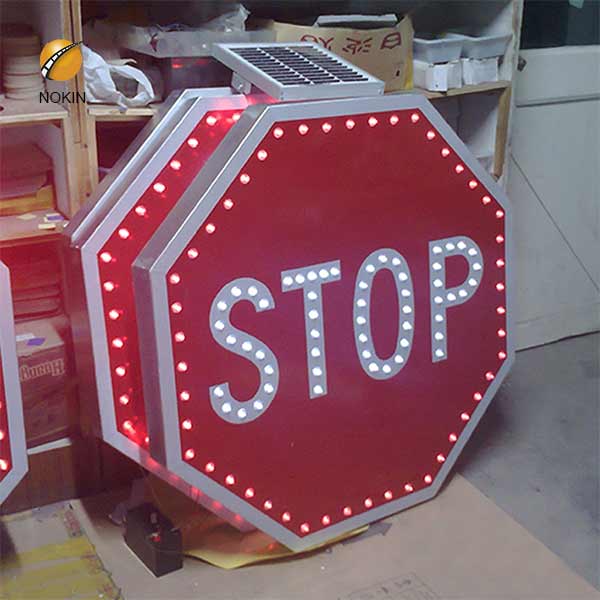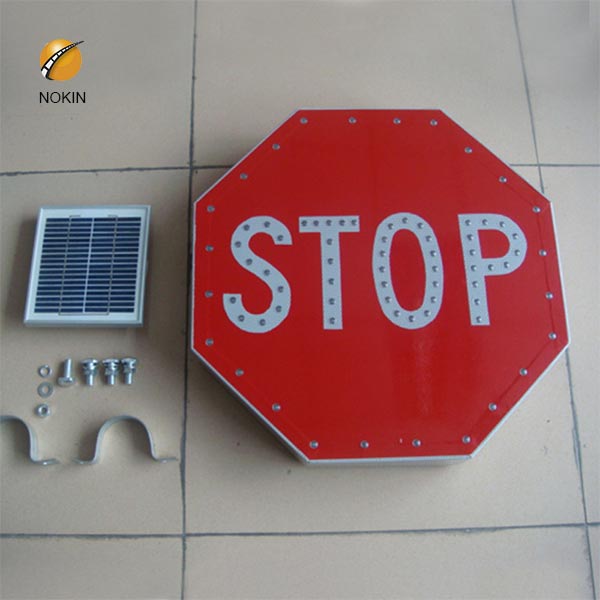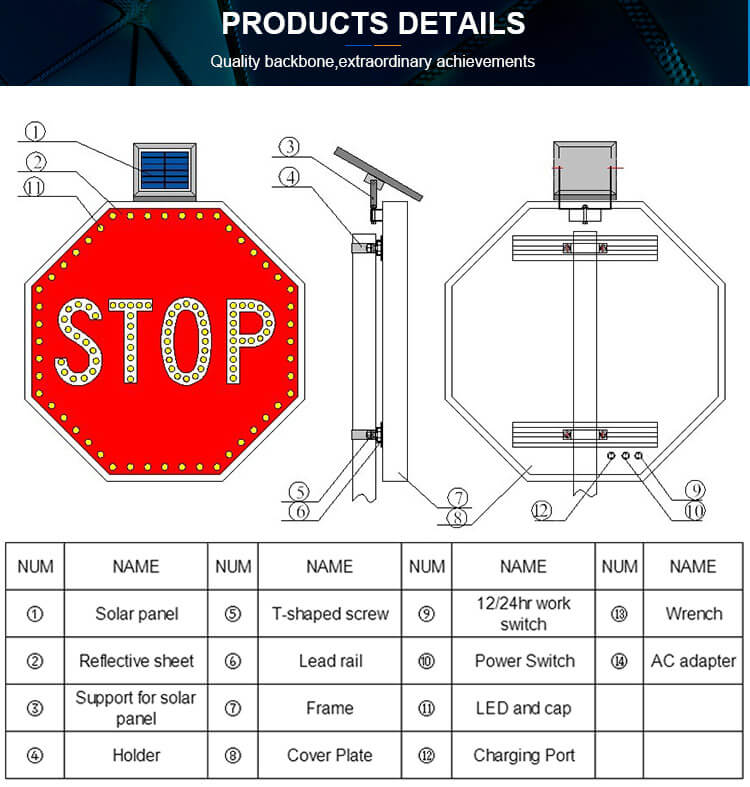




| Material: | Aluminium&Galvanized sheet |
| Reflective film: | 3M Engineering grade or 3M diamond grade |
| Solar panel: | 15V/8W or custom |
| Battery: | 12V/8Ah or custom |
| Voltage: | DC 12V or DC 11.1V |
| Leds distance: | <4.5CM |
| Led color: | Red, Yellow or White |
| Flashing frequency: | 50±2/min |
| Visual distance: | >800m |
| Working in rainy days: | 360H |
| Size: | 600mm /800mm /1000mm or Custom |

Stellar power can’t compete with other kinds of renewable energy unless that cost drops to around $US400 per kilogram, Discover Magazine reports. Billionaire Elon Musk and his rocket company
The solar power inverter is a key part of any solar panel system, converting electricity from direct current (DC) to alternating current (AC) before it can be used in your home. While solar panels can last up to 25 or 30 years , unfortunately, the inverter isn’t quite so hardy – it will generally need replacing after 10 or 15 years , the cost of which will set you back between £800 and £
3/4/2011 · a stir recently when he declared that the Fukushima Daiichi disaster had confirmed him as a supporter of nuclear power At least with wind and solar power, it is possible to see the cost curve ...
13/1/2018 · the cost of generating power from onshore wind has fallen by around 23% since 2010 while the cost of solar photovoltaic (PV) electricity has fallen by 73% in that time. With further price falls
Solar water heaters cost more to install than other types of water heaters. A professional can install a traditional heater system for around $772 to $953 , with an average of $871 . However, the potential energy savings and tax credits, plus the peace of mind that comes from safeguarding your home from future gas or electricity price hikes, make solar energy systems a sound long-term investment.
I think investors are completely discounting the cost curve First Solar presented in the q4 call, they'll probably have atleast a 15 cent module in 3-4 years that is a pretty big deal from my
EL TAYYAN/Turk J Phys process. Another method to extract all the parameters of a solar cell from a single I V curve under constant illumination level using the Lambert W function has been suggested by Zhang et al. [24]. They have reduced the number of the
Since solar cells convert light to electricity it might seem odd to measure the photovoltaic cells in the dark. However, dark IV measurements are invaluable in examining the diode properties. Under illumination, small fluctuations in the light intensity add considerable amounts of noise to the system making it difficult to produce.
Solar cells would replace only those generators whose operating and maintenance costs resulted in a per-kilowatt hour cost higher than the generators’ proposed replacements. The end result would be, according to the task force, “a significant cost benefit of about $1 billion” for the government.
7/1/2021 · The solar battery offered instead a direct route to solar power; light went in, current came out. There were no moving parts to wear out or break down; just little sheets of silicon the size of
Power Density (mW/cm) Illuminated JV Curve 36 Buonassisi (MIT) 2011 Efficiency Calculations MPP way to reduce the cost of solar. 41 Buonassisi (MIT) 2011 The Area Needed to Produce A Certain Amount of Power Scales with Efficiency 100% efficiency ...
The maximum power output can be achieved by an electronic tracking of maximum power points (MPPs) on the characteristic curve of solar PV module. The MPPs can be tracked by a power electronic circuitry called maximum power point tracker (MPPT) [2].
According to Bloomberg, each time the use of solar power doubles, the cost is reduced by 24%. This creates what is known as a positive feedback loop. More scaling of solar energy results in a
2/12/2020 · Everybody loves solar power, right? It’s nice, clean, renewable energy that’s available pretty much everywhere the sun shines. If only the panels weren’t so expensive. Even better, solar is
Current prices for solar electric power systems are about $2.50 per peak watt, a price that has been declining by about 7 percent per year for the last few decades. The day/night cycle, non-ideal sun angles, weathering, and cloud cover reduce power output